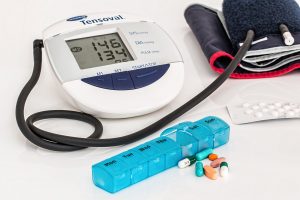Diagnostic processes and use of investigations before a cancer diagnosis in patients with comorbidities: optimising testing strategies to improve diagnostic timeliness and reduce emergency presentations
Start Date May 2018
Code U2-C
Status Ongoing
Introduction
 Individuals with possible cancer symptoms often have pre-existing health problems (hereafter called comorbidities). Comorbidities can influence the timeliness of diagnosis of cancer and decisions about testing strategies, however evidence on the underlying mechanisms and on morbidity-specific effects is scant.
Individuals with possible cancer symptoms often have pre-existing health problems (hereafter called comorbidities). Comorbidities can influence the timeliness of diagnosis of cancer and decisions about testing strategies, however evidence on the underlying mechanisms and on morbidity-specific effects is scant.
Aims & objectives
The overall aim is to generate evidence for optimising diagnostic strategies in patients with comorbidities experiencing possible cancer symptoms, in order to improve diagnostic timeliness. Specific objectives include:
- To systematically evaluate the available evidence on the effects of comorbidity, overall and for specific conditions, on each step along diagnostic pathways and develop a comprehensive conceptual framework.
- Analyse primary and secondary care data in order to evaluate diagnostic processes and healthcare utilisation patterns and identify testing strategies associated with increased or reduced risk of prolonged diagnostic intervals and/or emergency presentation in patients with different comorbidities.
Methodology
We have completed a critical literature review evaluating the evidence on the effects of comorbidities, overall and by specific morbid condition, on each step along the diagnostic pathways, from symptomatic presentations to investigations. A comprehensive framework has been developed to elucidate the mechanisms through which comorbidities can facilitate or interfere with timely cancer diagnosis.
Using primary care, secondary care and cancer registration data we are currently analysing diagnostic processes and healthcare utilisation patterns pre-cancer diagnosis among patients with specific comorbidities by diagnostic route taking into account presenting symptoms, patient and healthcare factors.
Outputs & impact
The project will shed light on mechanisms through which specific comorbidities can influence the diagnostic process and increase or reduce the risk of advanced stage at diagnosis and/or emergency presentations in certain patient groups. Possible targets for interventions to improve the diagnostic process for new symptom onset in comorbid patients will be identified.
Next steps
Using linked electronic health records we will analyse diagnostic processes and healthcare utilisation patterns pre-cancer diagnosis among patients with specific comorbidities, taking into account presenting symptoms, patient and healthcare factors.
An external grant/fellowship application will be developed focusing on diagnostic strategies for patients with comorbid chronic conditions.
Publications
- Renzi C, Kaushal A, Emery J, Hamilton W, Neal R, Rachet B, Rubin G, Singh H, Walter FM, de Wit NJ, Lyratzopoulos G. Comorbid chronic diseases and the diagnosis of cancer: A review of disease-specific effects and underlying mechanisms. Nat Rev Clin Oncol 2019 Dec; 16(12):746-761. doi: 10.1038/s41571-019-0249-6.
- Renzi C, Lyratzopoulos G, Hamilton W, Maringe C, Rachet B. Contrasting effects of comorbidities on emergency colon cancer diagnosis: a longitudinal data-linkage study in England. BMC Health Services Research 2019;19(1):311.
- Renzi C, Lyratzopoulos G, Hamilton W, Rachet B. Opportunities for reducing emergency diagnoses of colon cancer in women and men: a data-linkage study on pre-diagnostic symptomatic presentations and benign diagnoses. Eur J Cancer Care 2019 Feb 8:e13000. doi: 10.1111/ecc.13000.
- Renzi C, Lyratzopoulos G. Comorbidity and the diagnosis of symptomatic-but-as-yet-undiagnosed cancer. Br J Gen Pract. 2020;70(698):e598-e599
- Koo MM, Swann R, McPhail S, Abel GA, Renzi C, Rubin GP, Lyratzopoulos G. Morbidity and measures of the diagnostic process in primary care for patients subsequently diagnosed with cancer. Family Practice, Nov 2021. doi: 10.1093/fampra/cmab139
- Benitez Majano S, Lyratzopoulos G, de Wit NJ, White B, Rachet B, Helsper C, Usher-Smith J, Renzi C. Mental Health Morbidities and Time to Cancer Diagnosis Among Adults With Colon Cancer in England. JAMA Network Open 2022; 5(10):e2238569. doi: 10.1001/jamanetworkopen.2022.38569


